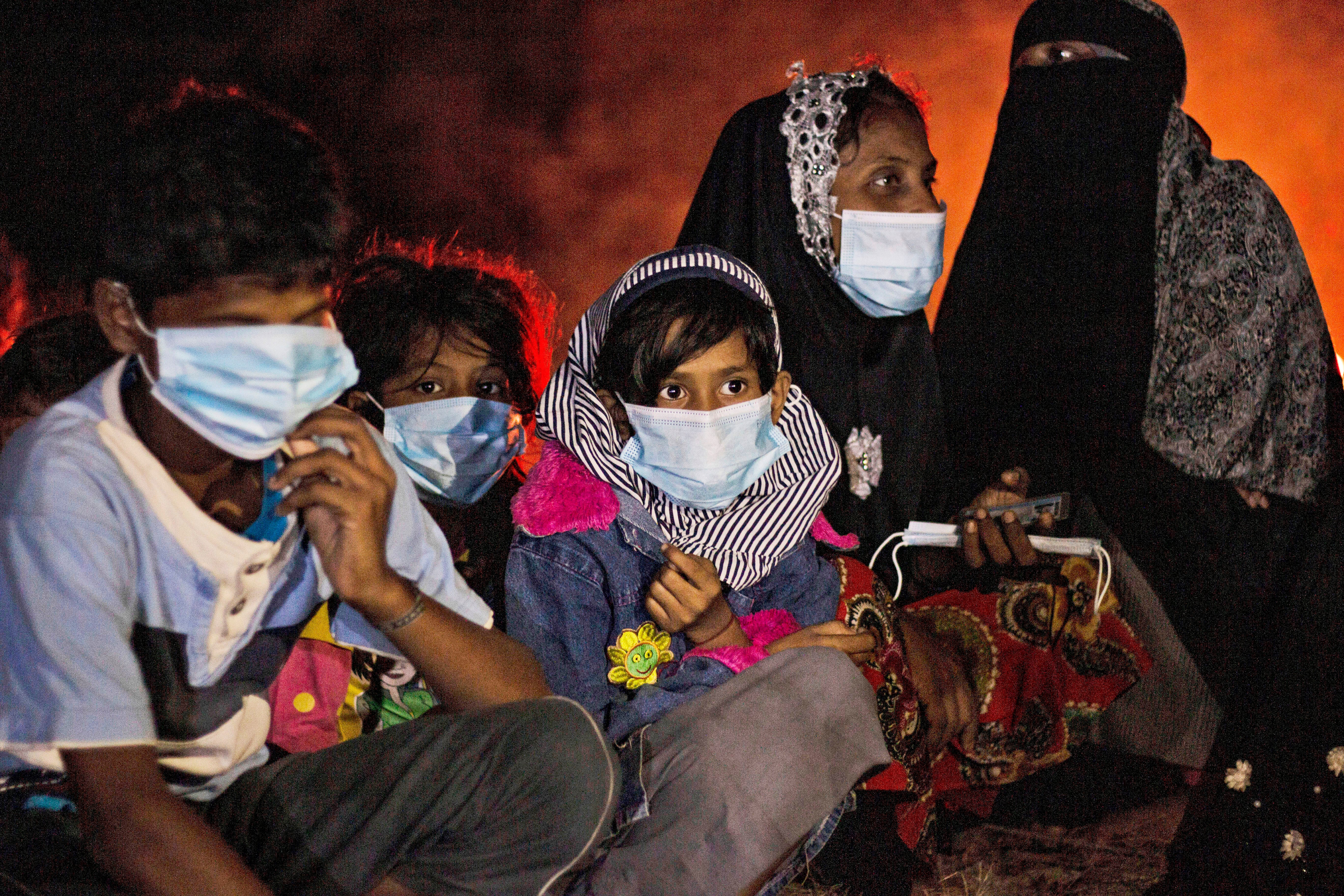Rohingya refugees welcome US calling repression genocide
Rohingya refugees in Bangladesh’s sprawling camps have welcomed an announcement by the U.S. calling the repression on the minority group in Myanmar a genocide

Your support helps us to tell the story
From reproductive rights to climate change to Big Tech, The Independent is on the ground when the story is developing. Whether it's investigating the financials of Elon Musk's pro-Trump PAC or producing our latest documentary, 'The A Word', which shines a light on the American women fighting for reproductive rights, we know how important it is to parse out the facts from the messaging.
At such a critical moment in US history, we need reporters on the ground. Your donation allows us to keep sending journalists to speak to both sides of the story.
The Independent is trusted by Americans across the entire political spectrum. And unlike many other quality news outlets, we choose not to lock Americans out of our reporting and analysis with paywalls. We believe quality journalism should be available to everyone, paid for by those who can afford it.
Your support makes all the difference.
Rohingya refugees in Bangladesh on Monday welcomed the announcement by the United States that it considers the violent repression of their largely Muslim ethnic group in Myanmar a genocide.
As news of the announcement by U.S. Secretary of State Antony Blinken spread across the sprawling camps in Cox’s Bazar district that are now home to about 1 million Rohingya, many residents expressed their enthusiasm.
“We are very happy on the declaration of the genocide; many many thanks,” said 60-year-old Sala Uddin, who lives at Kutupalong camp.
“It has been 60 years starting from 1962 that the Myanmar government has been torturing us and many other communities including Rohingya,” he said. “I think a path to take action by the international community against Myanmar has opened up because of the declaration.”
The U.S. made the determination Monday to call the repression a genocide based on confirmed accounts of mass atrocities on civilians by Myanmar’s military in a widespread and systematic campaign against the Rohingya, Blinken said in a speech at the U.S. Holocaust Memorial Museum.
Imtiaz Ahmed, director of the Centre for Genocide Studies at the University of Dhaka, said the declaration was “a positive step," but it would be important to see what actions and “concrete steps” follow.
“Just by saying that genocide had been committed in Myanmar against the Rohingya is not good enough. I think we need to see what would follow from that statement,” Ahmed said.
He said it was too early to say how the new development would ensure the recognition of the Rohingya refugees, who have long been denied citizenship in Myanmar, and the fundamental questions remained how and when they would go back to Myanmar.
He also said that going for harsh economic sanction by the U.S. against Myanmar could be the next outcome. He said it was also equally important to see whether the U.S. would take interest in supporting the International Court of Justice in The Hague where Myanmar is facing a trial put forward by Gambia.
Myanmar's government is already under multiple layers of U.S. sanctions since a military coup ousted the democratically elected government in February 2021. Thousands of civilians throughout the country have been killed and imprisoned as part of ongoing repression of anyone opposed to the ruling junta.
Currently Bangladesh is hosting more than 1 million Rohingya refugees. More than 700,000 Rohingya have fled from Buddhist-majority Myanmar to refugee camps in Bangladesh since August 2017, when the military launched an operation aimed at clearing them from the country following attacks by a rebel group.
Bangladesh’s Prime Minister Sheikh Hasina said repeatedly that their repatriation to Myanmar is the solution to the crisis but Bangladesh would not force them to leave Bangladesh.